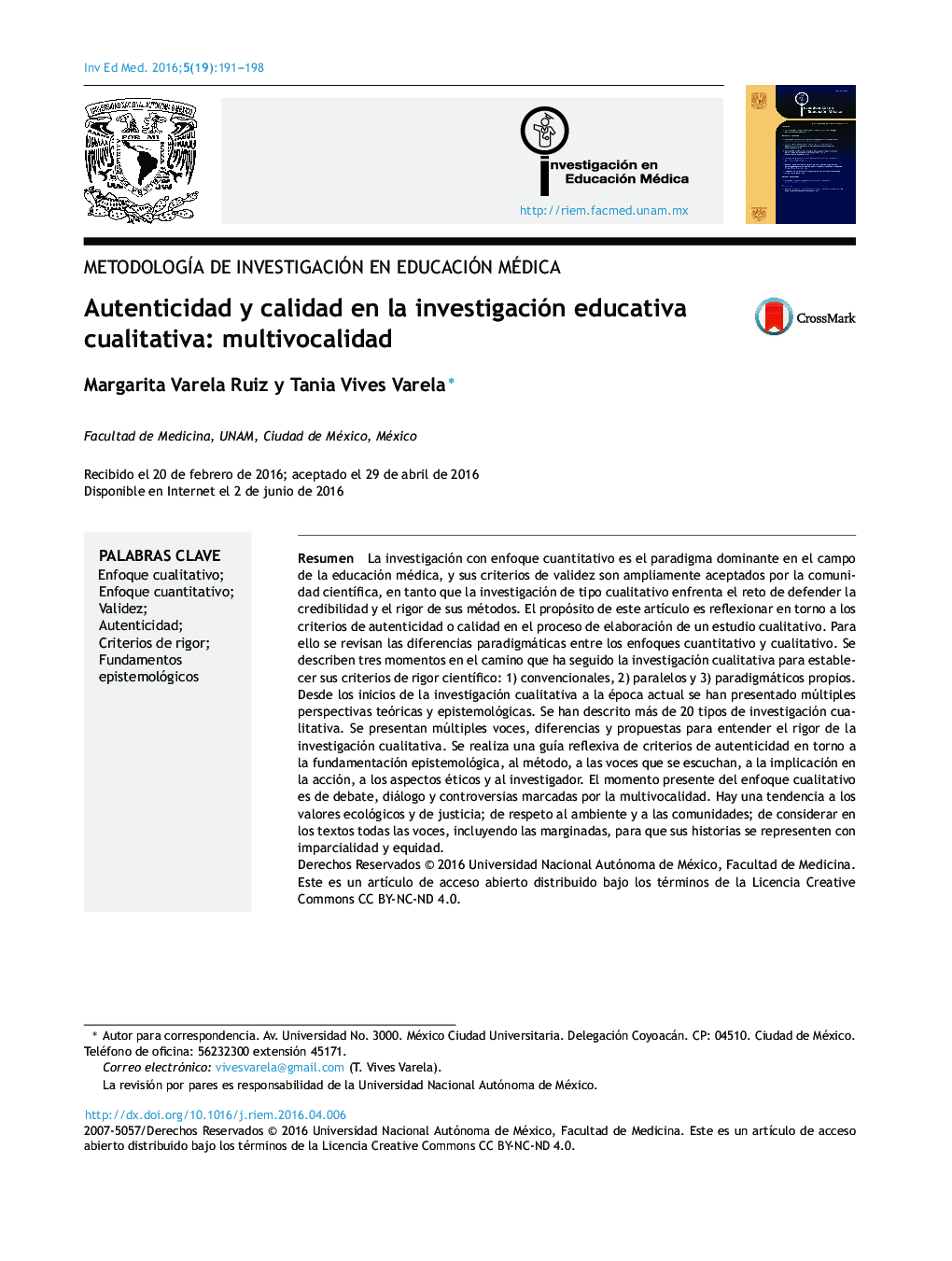| کد مقاله | کد نشریه | سال انتشار | مقاله انگلیسی | نسخه تمام متن |
|---|---|---|---|---|
| 3474404 | 1596726 | 2016 | 8 صفحه PDF | دانلود رایگان |
ResumenLa investigación con enfoque cuantitativo es el paradigma dominante en el campo de la educación médica, y sus criterios de validez son ampliamente aceptados por la comunidad científica, en tanto que la investigación de tipo cualitativo enfrenta el reto de defender la credibilidad y el rigor de sus métodos. El propósito de este artículo es reflexionar en torno a los criterios de autenticidad o calidad en el proceso de elaboración de un estudio cualitativo. Para ello se revisan las diferencias paradigmáticas entre los enfoques cuantitativo y cualitativo. Se describen tres momentos en el camino que ha seguido la investigación cualitativa para establecer sus criterios de rigor científico: 1) convencionales, 2) paralelos y 3) paradigmáticos propios. Desde los inicios de la investigación cualitativa a la época actual se han presentado múltiples perspectivas teóricas y epistemológicas. Se han descrito más de 20 tipos de investigación cualitativa. Se presentan múltiples voces, diferencias y propuestas para entender el rigor de la investigación cualitativa. Se realiza una guía reflexiva de criterios de autenticidad en torno a la fundamentación epistemológica, al método, a las voces que se escuchan, a la implicación en la acción, a los aspectos éticos y al investigador. El momento presente del enfoque cualitativo es de debate, diálogo y controversias marcadas por la multivocalidad. Hay una tendencia a los valores ecológicos y de justicia; de respeto al ambiente y a las comunidades; de considerar en los textos todas las voces, incluyendo las marginadas, para que sus historias se representen con imparcialidad y equidad.
Research with a quantitative approach is the dominant paradigm in the field of medical education; its validity criteria are widely accepted by the scientific community, while qualitative research faces the challenge of defending the credibility and rigour of its methods. The purpose of this article is to reflect on the criteria of authenticity used in the process of developing a qualitative study. Paradigmatic differences between quantitative and qualitative approaches are reviewed. Three stages are described in the path followed by qualitative research in order to establish its scientific rigour criteria: i) conventional, ii) parallel, and iii) paradigmatic. There have been many theoretical and epistemological perspectives from the beginning of qualitative research to the present. More than 20 kinds of qualitative research have been described. Many voices, differences and proposals are reviewed to help understand the rigour of qualitative research. A reflective guide on authenticity criteria is presented around the epistemological foundations, methods, voices that are heard, involvement in the action, ethical aspects, and the researcher. Nowadays the qualitative approach is marked by debate, dialogue, and controversy marked by multivocality. There is a tendency to pursue ecological values and justice, respect for the environment and for communities, as well as to consider all texts, including marginalised voices to represent their accounts with fairness and equity.
Journal: Investigación en Educación Médica - Volume 5, Issue 19, July–September 2016, Pages 191–198
